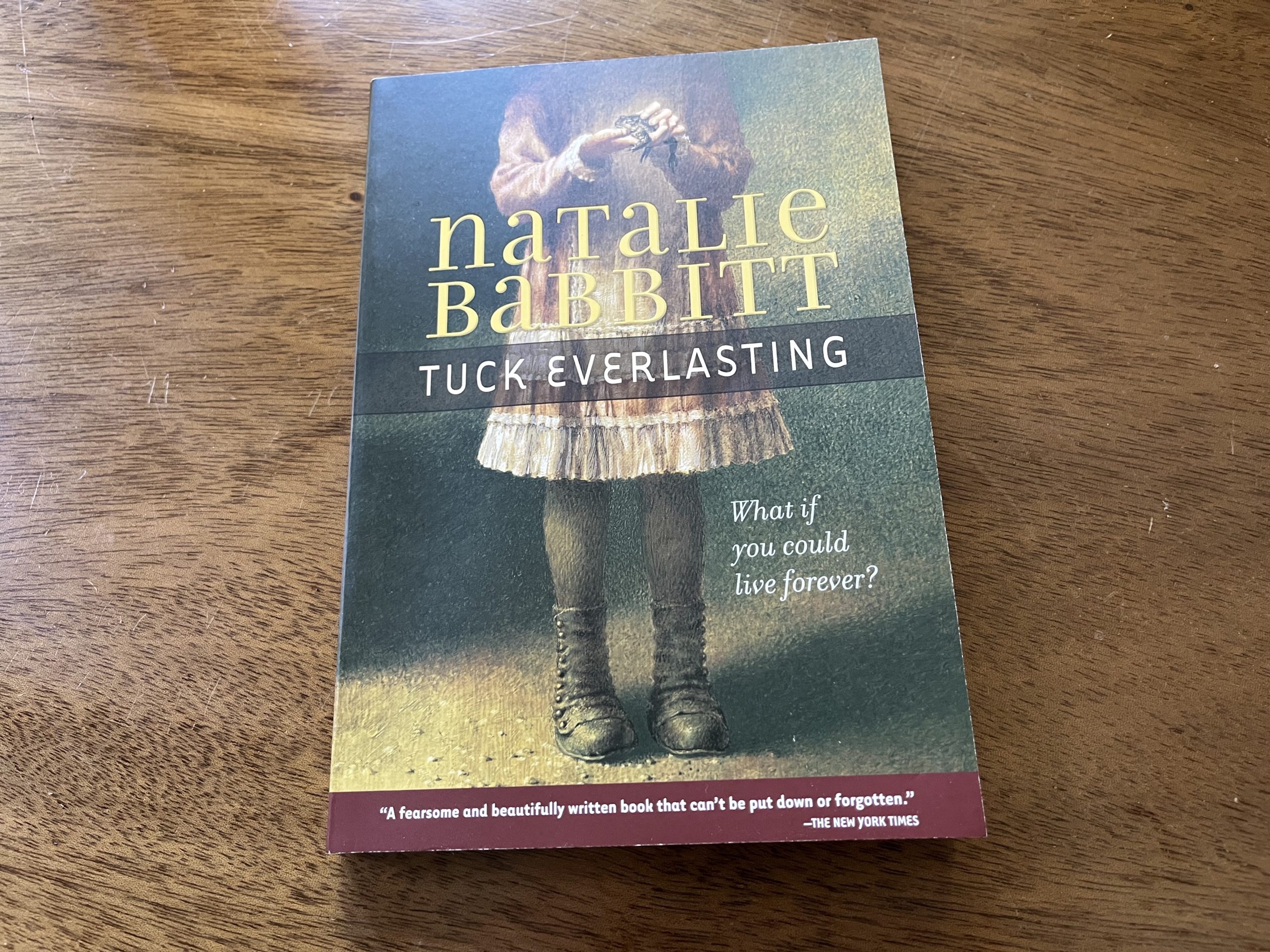Books tend to arrive on my horizon when I need them, and that was the case last month when I read about a 50th anniversary, graphic novel edition of the classic young adult novel “Tuck Everlasting” by Natalie Babbitt.
I had never read “Tuck,” which isn’t surprising since it’s generally geared toward ages 9-13 and I was 25 when it was released. I don’t like graphic novels, and didn’t know that a movie version came out in 2002. But when I saw that a paperback edition of the original was available for just under $5, I immediately placed an order.
The book’s original subtitle is “What if you could live forever?’ and that’s what first attracted me. To paraphrase the late author Natalie Babbitt, I love playing with questions that don’t have answers. The second thing that attracted me is that the heroine, 10-year-old Winnie Foster, is a lot like I was at that age and – given the book’s enduring popularity – like countless other 10-year-old girls.
Winnie is curious about life and death, feels trapped by her loving but overly protective family, and is desperate for adventure but still susceptible to fear. When she runs away from home, meets the Tuck family and discovers that a spring on her family’s property that they accidentally drank from bestows immortality, she has to decide whether or not to keep the secret.
I’ve been thinking about immortality a lot lately, mainly because , at age 75, I am increasingly reminded by the deaths of similarly aged friends and family that there is no magic spring. I never thought there was, but given that my parents “lived forever” (that is to say, ages 94 and 101) I assumed that the people in my close circle, and I myself, had plenty of time left to prepare for the inevitable.
Another reason, less personal but no less alarming, that immortality or something similar has been on my mind is news reports that the super rich and super powerful are thinking about or actively investing in a version of the magic spring.
During a recent gathering of dictators China’s Xi Jinping, 72, mused that organ transplants could soon allow people – some people – to live to age 150, and Russia’s Vladimir Putin, 72, said transplants could even grant “immortality.” North Korea’s Kim Jong Un, 41, just looked on and smiled.
Meanwhile, billionaires such as Jeff Bezos, Peter Thiel and Mark Zuckerberg have reportedly invested in companies focused on cellular rejuvenation and other means of extending life. And the acting director of our Centers for Disease Control and Prevention (CDC), Jim O’Neill, has suggested that Americans who donate organs be “compensated,” even though buying and selling organs remains illegal.
O’Neill has said compensation could prod more people to donate. But it would also be another step toward making life and death in America purely transactional.
Amazingly, “Tuck Everlasting,” half a century old, addresses these issues directly. During her adventure, Winnie encounters an old man who knows about the spring and plans to buy and sell access to it. “But I’m not going to sell it to just anybody,” he says. “Only to certain people, people who deserve it. And it will be very, very expensive.” He then adds, looking at the Tucks, “Ignorant people like you should never have the opportunity. It should be kept for … certain others. And for me.”
Should the world’s dictators and billionaires find even a rough equivalent to a magic spring, you can bet it will indeed be very, very expensive, and not available to people like you and me. But is it right that they, or we, seek immortality to begin with?
Read or re-read “Tuck Everlasting” not for current political commentary, even though it’s hard to miss, but for its simple eloquence, lyricism and humanity. Give it to children and adults, not with a political agenda, but with thoughtfulness and love.
And when a villain appears among us, as he does in this book, be like the Tuck family and Winnie Foster. Don’t be afraid to fight back.





0 Comments